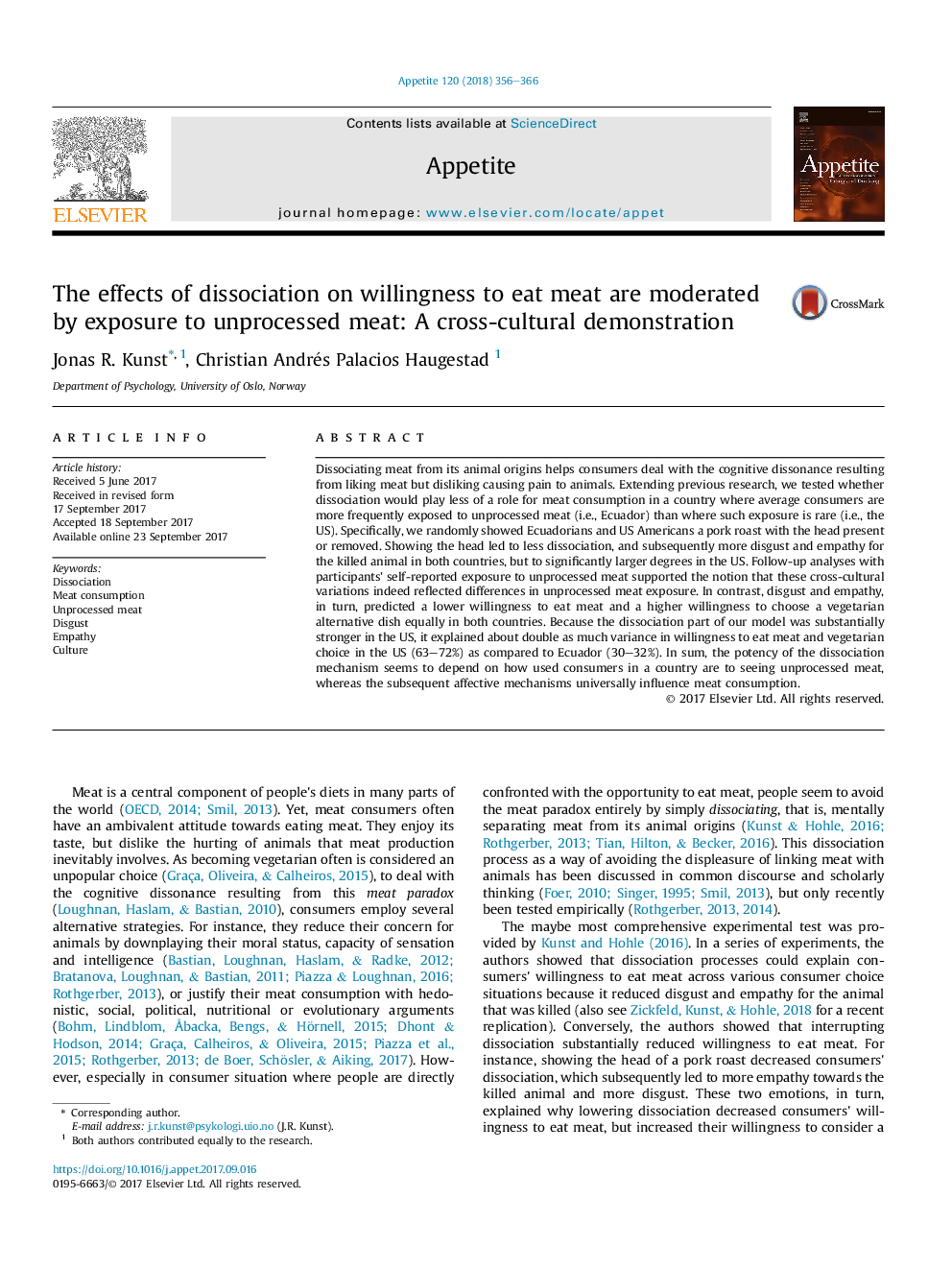ترجمه فارسی عنوان مقاله
اثرات تقسیم بر تمایل به خوردن گوشت با قرار گرفتن در معرض گوشت فرآوری شده تعدیل می شود: تظاهرات بین فرهنگی
عنوان انگلیسی
The effects of dissociation on willingness to eat meat are moderated by exposure to unprocessed meat: A cross-cultural demonstration
| کد مقاله | سال انتشار | تعداد صفحات مقاله انگلیسی |
|---|---|---|
| 125857 | 2018 | 11 صفحه PDF |
منبع

Publisher : Elsevier - Science Direct (الزویر - ساینس دایرکت)
Journal : Appetite, Volume 120, 1 January 2018, Pages 356-366
ترجمه کلمات کلیدی
انحلال، مصرف گوشت، گوشت بدون فرآورده، نفرت، یکدلی، فرهنگ،
کلمات کلیدی انگلیسی
Dissociation; Meat consumption; Unprocessed meat; Disgust; Empathy; Culture;

